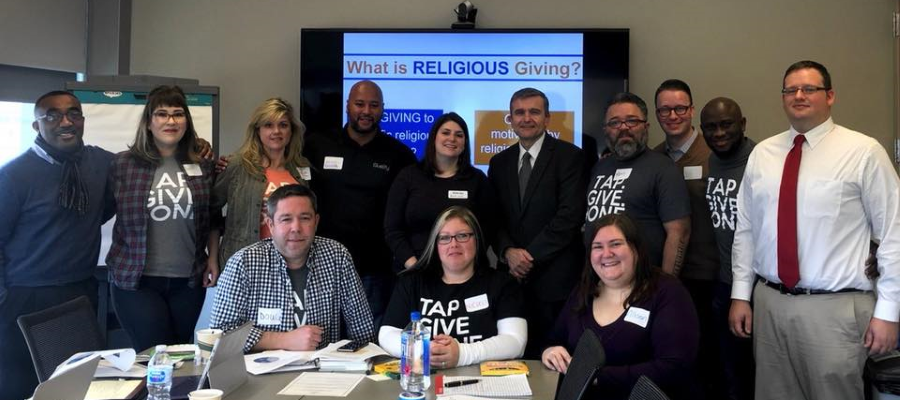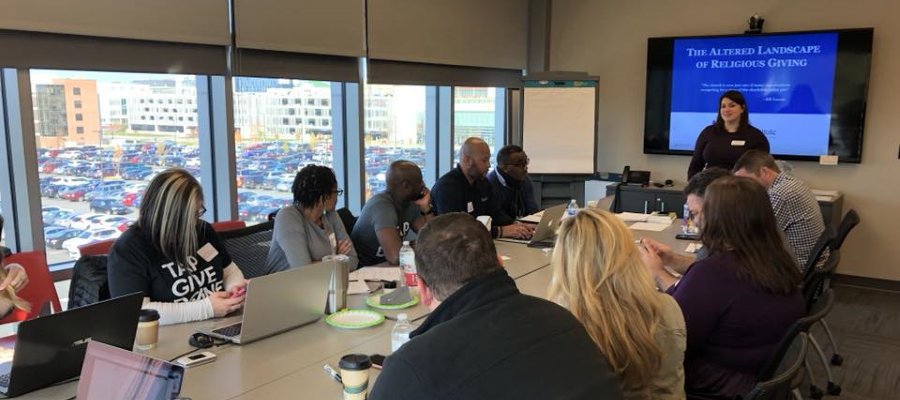Increase Your Giving This Christmas With Two Little Words
Over the years, in my capacities as both a pastor and church administrator, I’ve spent considerable time studying and thinking about the topic of church giving; specifically, how to increase it. As a youth pastor, it seemed that a majority of my time was spent working as a fundraiser, and I just couldn’t wait until I was a full-fledged pastor and “didn’t have to worry about fundraising” anymore.
(That noise you just heard was all the pastors reading this laughing at my naivety.) In reality, I spend more time now thinking about finances and trying to raise funds—just on a much larger scale.

Because of that, I was thrilled when I was given the opportunity to attend a full-day seminar at the Lake Institute on Faith & Giving. It was a bit like trying to take a drink from a fire hose, but one moment during a day full of instruction and data analysis stood out to me and radically shifted my approach to how our church responds to giving.
You may have guessed it from the title, but the words that are key to increasing generosity and giving in your church are very simple: “Thank you.”
Two Completely Different Giving Experiences

The instructor for the event, Managing Director of Education and Engagement Melissa Spas, spoke about the differences in the experience of giving to her church versus giving to her alma mater. When giving to the university, she would receive an instant message of thanks via email. A week later, she would receive a hand-signed letter in the mail, once again thanking her for her gift.
Depending on where the contribution was made, she may also receive another message of gratitude from a student recipient or a faculty member associated with the scholarship program. Multiple “touches” of gratitude for one gift that represents a fraction of what she gives to her home church over the course of a year.
One Place of Worship’s Response to Church Giving
So how does that experience contrast with her church’s response?
Ms. Spas told us she receives two “thank you” messages each year. The first comes attached to a form asking for the next year’s giving commitment, and the second comes attached to the mandatory giving report churches provide to contributors. So while the sentiment is probably genuine, it doesn’t really feel like it.
As she related these experiences, I slouched in my seat a bit. I was guilty.
Church Giving Deserves Thanks, Too
I know the principle of thankfulness and gratitude works because I see it in action outside of our church finances. When someone volunteers their time or donates a non-monetary resource, I’m quick to offer my gratitude from the pulpit and in public. I understand that when I acknowledge my volunteers and offer them praise in a true and heartfelt way, they are much more likely to offer their services again in the future — often going above and beyond their original act of service.
Listening to the instructor talk about her experiences with the church gave me the clarity to see that the principle very much applies in our church finances. So I decided to make the period between Thanksgiving and Christmas a time of “congregation appreciation.” I’m hand-writing notes of appreciation and gratitude to each one of our members and personally delivering them each service. In just the few messages I’ve delivered so far, I can tell you that personal gratitude works. I’ve seen more engagement, willingness, and giving from those I’ve touched so far — and I’ve barely gotten started!
So if you’re looking for a boost in your giving this Christmas, try acts of gratitude instead of an appeal. You may be surprised by the results!



